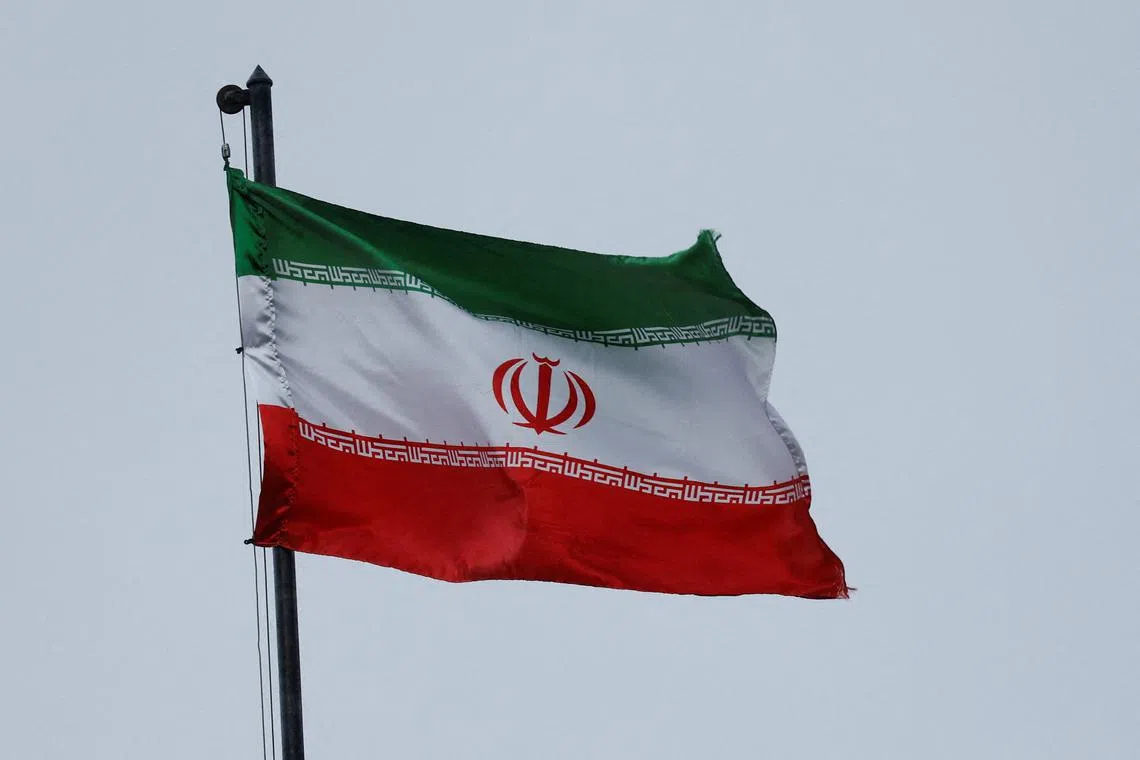Iran builds first-ever hypersonic ballistic missile amid US fears of arms sales to Russia
Sign up now: Get ST's newsletters delivered to your inbox

Iran says it has developed a hypersonic missile, which can move at five times the speed of sound.
PHOTO: REUTERS
Follow topic:
TEHERAN - Iran has developed a hypersonic missile capable of penetrating all defence systems, General Amirali Hajizadeh, the commander of its Revolutionary Guards aerospace unit, said on Thursday.
Hypersonic missiles, like traditional ballistic missiles which can deliver nuclear weapons, can fly at more than five times the speed of sound.
“This hypersonic ballistic missile was developed to counter air defence shields,” Gen Hajizadeh was quoted as saying by Iran’s Fars news agency.
“It will be able to breach all the systems of anti-missile defence,” said the general, adding that he believed it would take decades before a system capable of intercepting it is developed.
“This missile, which targets enemy anti-missile systems, represents a great generational leap in the field of missiles.”
The announcement comes after Iran admitted last Saturday that it had sent drones to Russia, but said it had done so before the Ukraine war.
Both Iran and Russia are targeted by stringent sanctions – Iran after the United States unilaterally pulled out of the 2015 nuclear deal, and Russia since it invaded Ukraine in February.
The two countries have responded to the sanctions by boosting cooperation in key areas to help prop up their economies.
Iran on Wednesday hosted Russia’s security chief Nikolai Patrushev for talks on subjects that the Russian side said included “the fight against terrorism and extremism” as well as measures to counter Western interference.
A hypersonic missile is manoeuvrable, making it harder to track and defend against. Unlike ballistic missiles, hypersonic missiles fly on a trajectory low in the atmosphere, potentially reaching targets more quickly.
While countries like the US have developed systems designed to defend against cruise and ballistic missiles, the ability to track and take down a hypersonic missile remains a question.
Thursday’s announcement comes against a backdrop of stalled talks on reviving the 2015 nuclear deal.
The deal reached with six major powers – Britain, China, France, Germany, Russia and the US – gave Iran relief from sanctions in return for guarantees it would not develop an atomic weapon.
Iran has always denied wanting a nuclear arsenal.
The deal collapsed after the US’ unilateral withdrawal in 2018 under then President Donald Trump.
Thursday’s statement also follows Iran’s announcement last Saturday of the successful test flight of a rocket capable of propelling satellites into space.
The US has repeatedly voiced concern that such launches could boost Iran’s ballistic missile technology, extending to the potential delivery of nuclear warheads.
In March, the US government imposed sanctions on Iran’s missile-related activities. It said at the time that the punitive measures followed “Iran’s recent missile attack on Arbil, Iraq, as well as missile attacks by Iranian proxies against Saudi Arabia and the United Arab Emirates”. AFP

